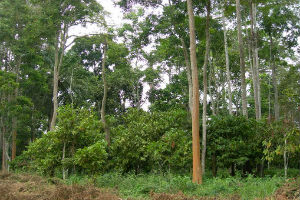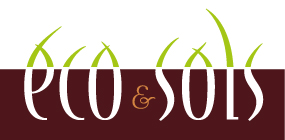 System approach for the transition to biodiversified agroecosystems
System approach for the transition to biodiversified agroecosystems
System approach for the transition to biodiversified agroecosystems, from process analysis to the design of multi-scale systems in collaboration with stakeholders
The Stradiv project brings together a large consortium of research partners covering a wide range of disciplinary skills to meet the challenges involved in helping small producers in developing countries to change over to agroecological farming practices.
This project sets outs
- to characterise more precisely the effect of introducing and managing a certain biodiversity in the cropping systems on the quality of the ecosystem services provided by these systems,
- to encourage discussion between producers and local stakeholders to set up new systems including greater biodiversity through a shared design approach.
The project studies a variety of biodiversified systems in rotation or in association with annual or permanent crops :
- systems in rotation with very extensive rainfed rice crops in Madagascar,
- market garden systems and intensive banana systems with cover in the Antilles,
- highly diversified or semi-intensive agroforestry systems in Central America,
- cocoa agroforestry systems in Cameroon
Research topics
- How does the functional diversity of associated plants modify ecosystem services such as the regulation of bio-aggressors, biogeochemical cycles and agricultural production ?
- Designing new biodiversified cropping systems which maximise ecosystem services while taking account of farmers’ constraints ?
- Supporting the agroecological transition at various spatial scales with all the stakeholders concerned ?
- Are there generic rules linking ecosystem functions and biodiversity ?
- Adapting modelling tools to support the design of biodiversity-based solutions for small farmers in the tropics ?
- How can knowledge about ecosystem services be formalised so that it can be used to co-design new biodiversified cropping systems ?
Involvement of Eco&Sols
The Eco&Sols Joint Research Unit is involved in the project in the study of the relationships between functional plant diversity, soil organisms and biogeochemical cycles by identifying the functional traits of the plants and the soil nematodes (trophic groups) which are associated with beneficial effects, in particular for the bioavailability of nutrients (N and P) for the main crop.
Date
2015-2018
Partners
Various research units in Montpellier UPR AÏDA (co-coordinateur du projet Eric Scopel) et GECO (co-coordinateur du projet Philippe Tixier) et les UMR SYSTEM, AMAP, BIOAGRESSEURS, ARTDEV, CBGP, CEFE, GREEN, HORTSYS, INNOVATION, PSH, SELMET, TETIS
Foreign partners
- institutions nationales : FOFIFA, Université d’Antananarivo, Université des Antilles, Université de San Jose, Université de Dschang
- Centres internationaux du CGIAR: ICRAF (Cameroun, Amerique Centrale) et AfricaRice (Madagascar)
- Centre de Recherche régional : CATIE (Amerique Centrale)
Funding
Agropolis Fondation
Contact
Jean-Michel Harmand, Eco&Sols, CIRAD Cameroun
e-mail :






